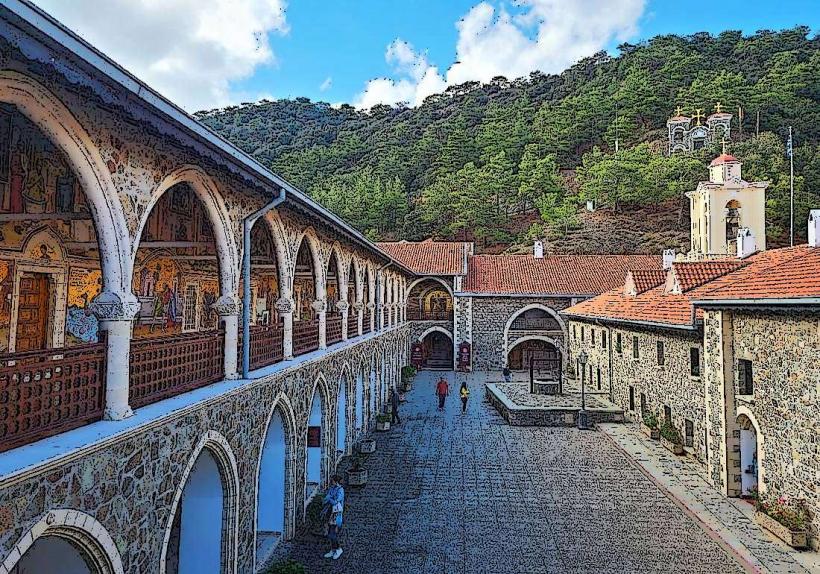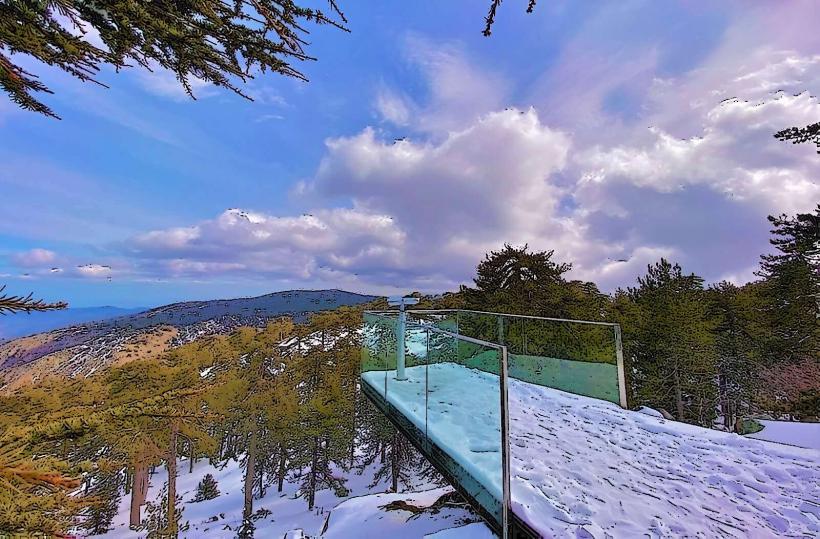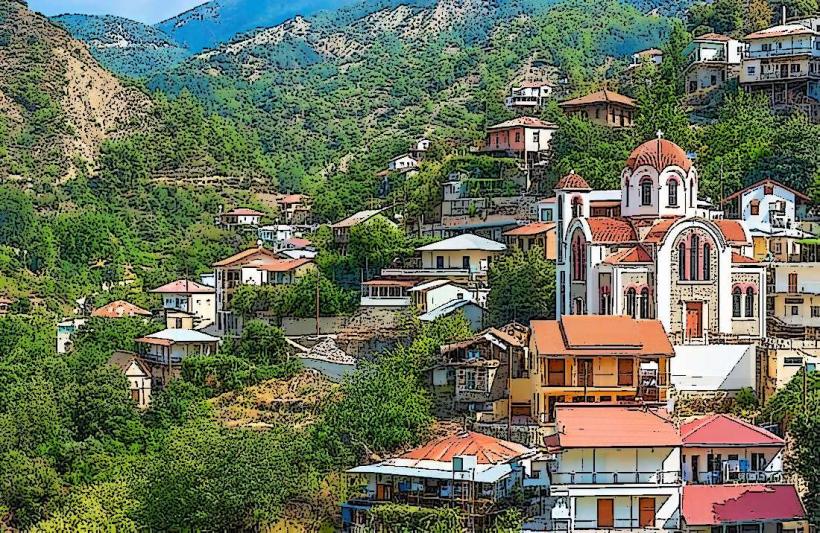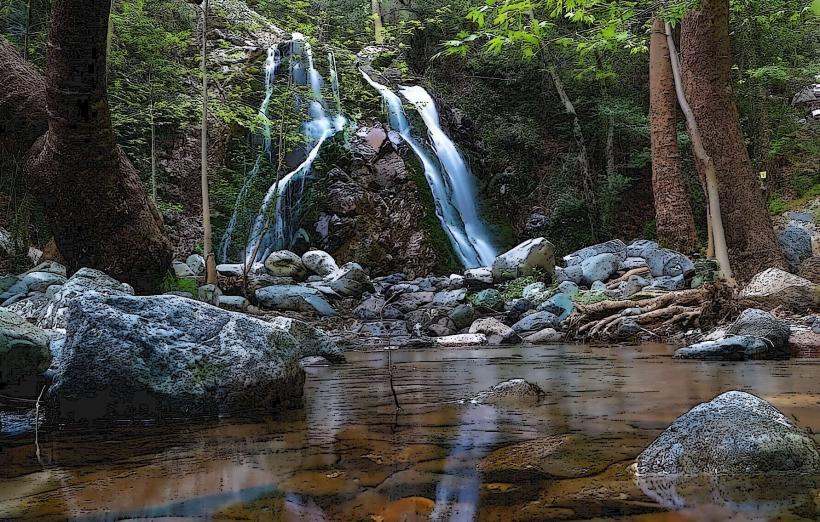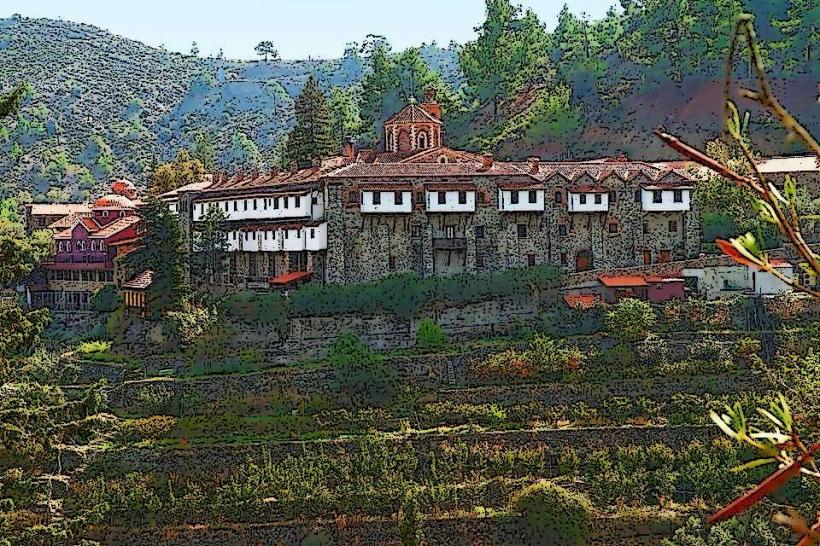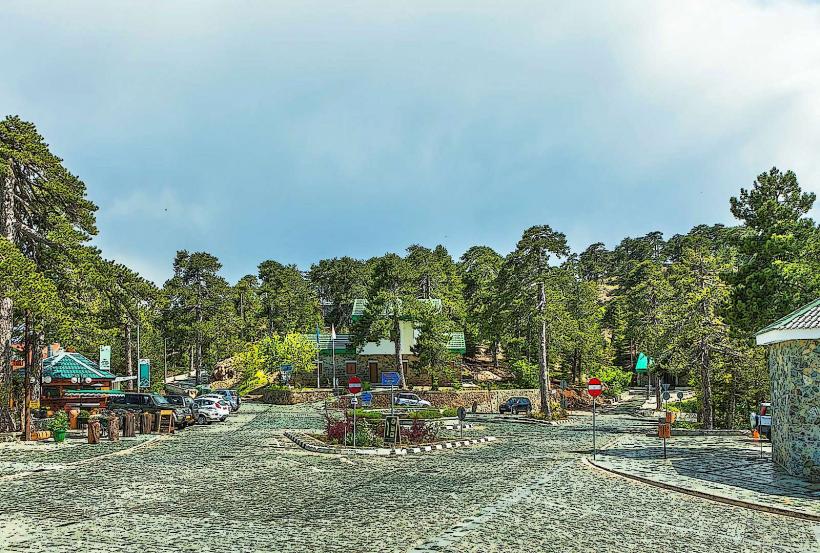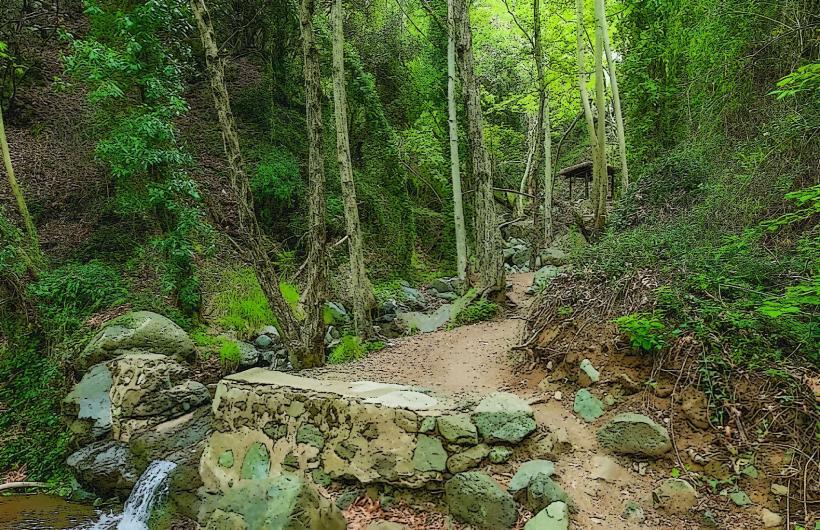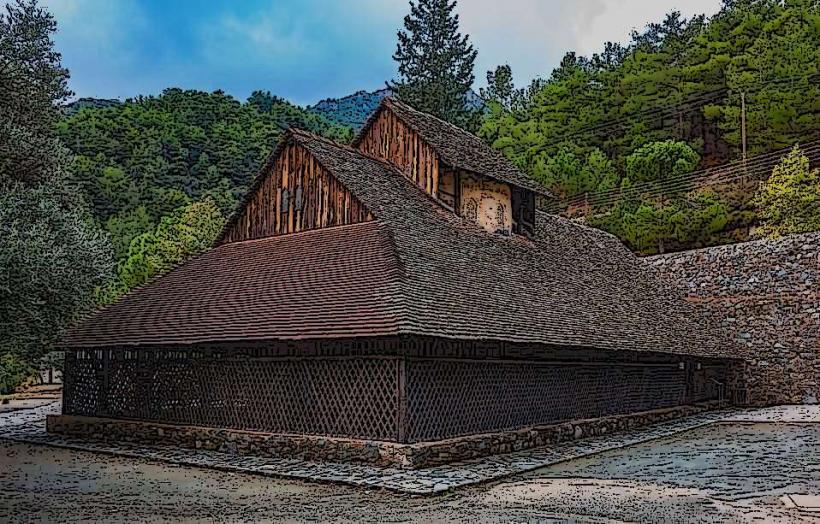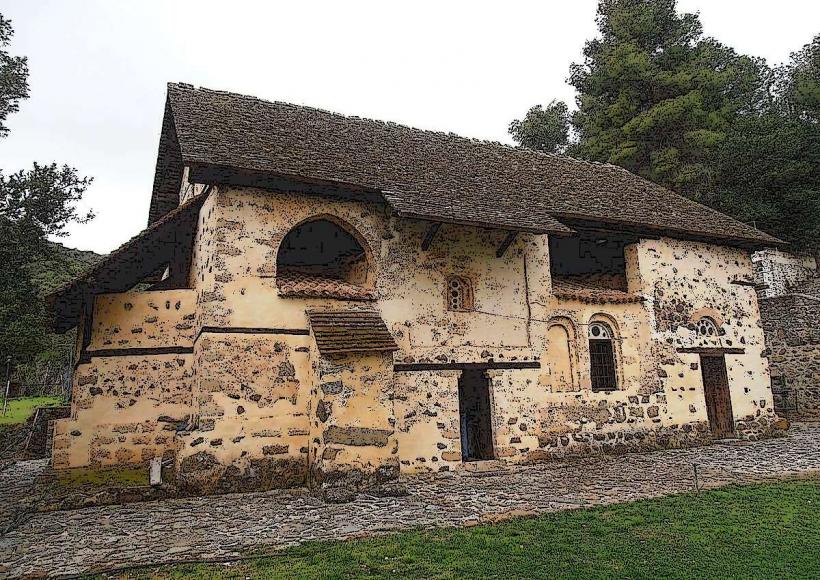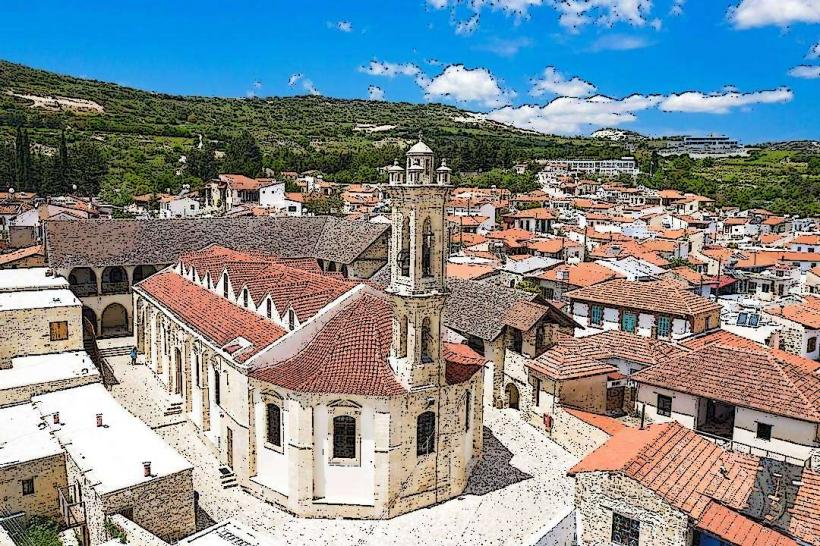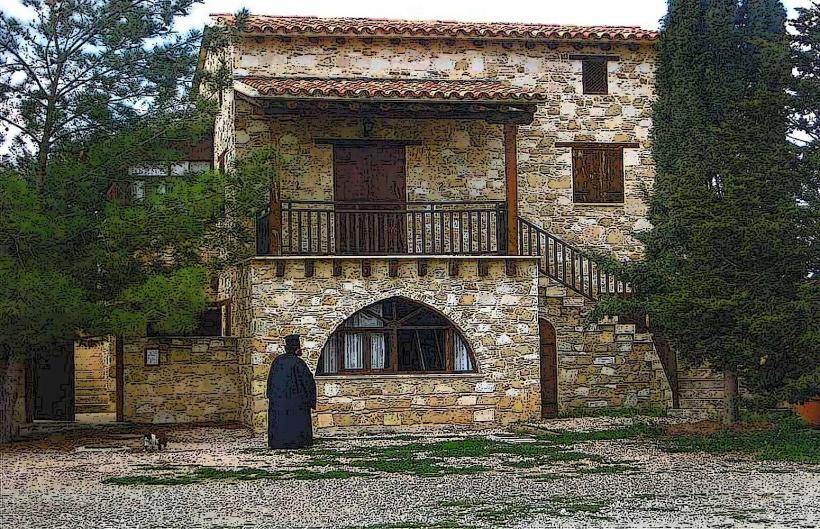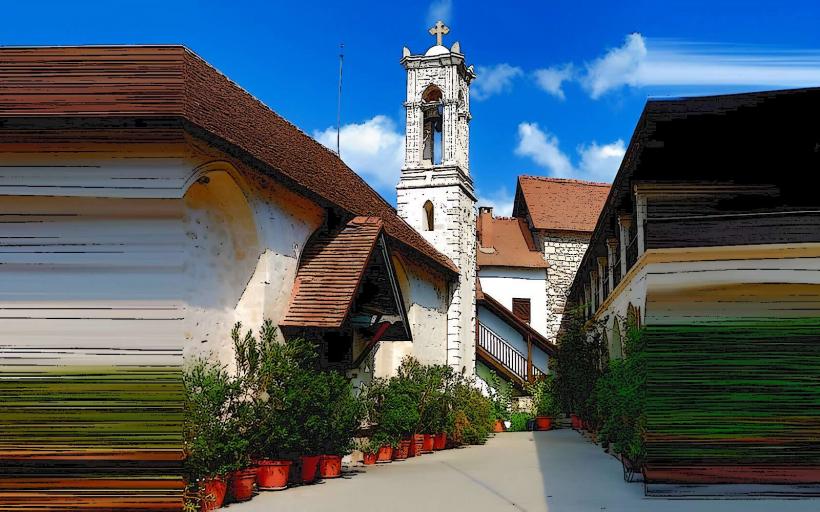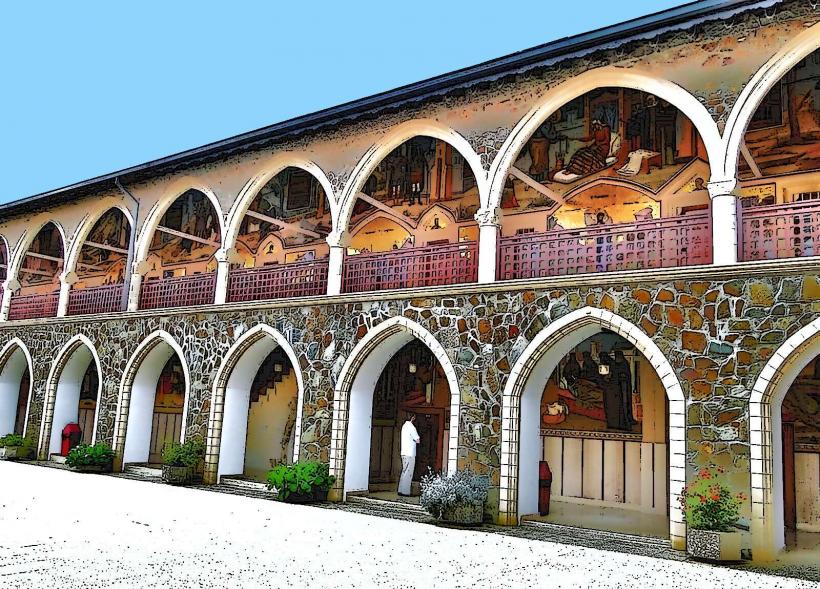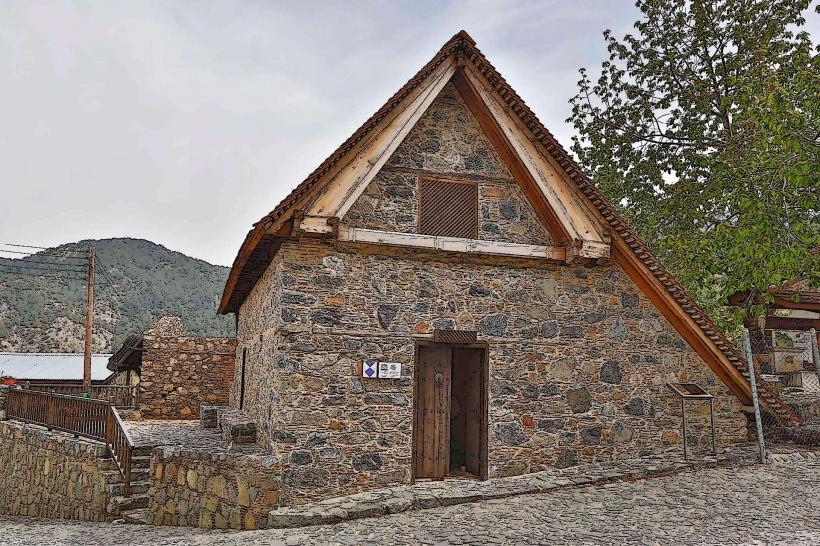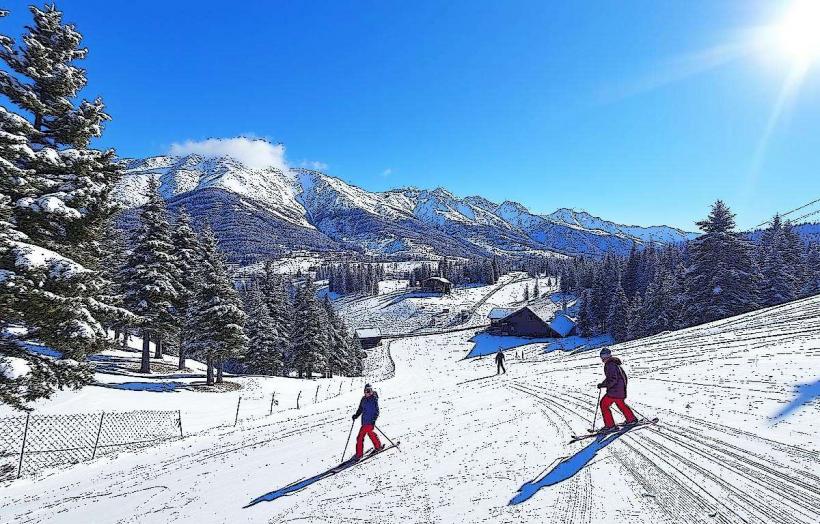Information
Landmark: Pedoulas VillageCity: Troodos
Country: Cyprus
Continent: Europe
Pedoulas Village is a picturesque mountain village located in the Troodos Mountains of Cyprus, known for its traditional architecture, rich cultural heritage, and stunning natural surroundings. Situated at an altitude of approximately 1,100 meters, Pedoulas is one of the most popular villages in the region for visitors seeking an authentic experience of Cypriot village life. Here’s a detailed overview of Pedoulas Village:
1. Location and Accessibility
- Location: Pedoulas is located in the Marathasa Valley, a fertile area in the Troodos Mountains, approximately 50 kilometers from Nicosia (the capital of Cyprus). The village lies on the slopes of the mountain and is surrounded by lush forests and scenic landscapes.
- Accessibility: Pedoulas is easily accessible by car and is situated along the main road that connects the Troodos Mountains to the rest of Cyprus. The village is well-connected, and its location makes it an ideal base for exploring the surrounding Troodos National Forest Park and other nearby villages.
2. History and Cultural Significance
- Historical Background: Pedoulas has a long history, dating back to Byzantine times. The village’s strategic location in the Troodos Mountains made it an important settlement throughout Cypriot history. Historically, Pedoulas was known for its agricultural activities, particularly its production of fruits like apples and cherries, as well as its role in the silk production industry.
- Name Origin: The name “Pedoulas” is thought to derive from the Greek word “pedio,” meaning “plain,” referring to the village’s location in a valley surrounded by mountainous terrain.
- Cultural Heritage: The village is known for its traditional Cypriot character, with well-preserved stone houses, narrow alleys, and old-style courtyards. It is part of the UNESCO-listed Painted Churches of the Troodos Region, owing to its Byzantine-era churches and religious importance.
3. Architectural Features
- Traditional Architecture: Pedoulas retains much of its traditional architecture, with stone-built houses, wooden balconies, and red-tiled roofs. The houses are arranged in a way that follows the natural contours of the mountain, giving the village a unique, organic layout. Many of the older houses have been preserved or restored to maintain the authentic look of the village.
- Narrow Streets: The village is known for its narrow, winding streets that add to its charm and offer visitors a chance to explore its hidden corners. Walking through the streets of Pedoulas feels like stepping back in time, with quaint homes and well-maintained courtyards.
- Courtyards and Gardens: Many houses in Pedoulas have beautiful courtyards filled with colorful flowers, potted plants, and trees. The gardens often reflect the traditional Cypriot style, with an emphasis on natural beauty and sustainability.
4. Notable Attractions
- Church of Archangel Michael: One of the most important landmarks in Pedoulas is the Church of Archangel Michael, a Byzantine-style church with a history dating back to the 15th century. The church features impressive frescoes, including depictions of saints and religious scenes. It is part of the UNESCO World Heritage-listed Painted Churches of the Troodos due to its well-preserved art and architectural significance.
- Byzantine Museum: Pedoulas is home to a small but fascinating Byzantine Museum, located within the church of Archangel Michael. The museum showcases religious icons, artifacts, and frescoes, providing visitors with a deeper understanding of the region’s Byzantine heritage and the religious art of Cyprus.
- Pedoulas Folk Art Museum: Another interesting museum in the village is the Folk Art Museum, which displays traditional Cypriot crafts, tools, and household items from the past. This museum offers insights into the rural lifestyle of Cyprus, including the local farming and weaving traditions.
- Agios Nikolaos Church: Another significant church in the village is the Church of Agios Nikolaos, which features beautiful frescoes and is dedicated to Saint Nicholas, the patron saint of sailors and travelers.
5. Natural Beauty and Surroundings
- Troodos Mountains: Pedoulas is located within the heart of the Troodos Mountains, an area renowned for its stunning natural beauty. The village is surrounded by dense pine forests, olive groves, and fertile orchards, making it a paradise for nature lovers.
- Hiking and Outdoor Activities: The area around Pedoulas offers numerous opportunities for hiking, with trails that lead to scenic viewpoints, waterfalls, and nearby mountain peaks. The Caledonia Waterfalls, located near the village of Moutoullas, are a popular hiking destination. Visitors can explore these natural wonders on foot, taking in the breathtaking views of the Marathasa Valley and surrounding forests.
- Flora and Fauna: The Troodos Mountains, including the Pedoulas area, are home to a rich variety of flora and fauna. Wildlife enthusiasts can spot species such as wild boars, foxes, and mouflons (wild sheep), as well as a wide range of bird species.
6. Cultural Activities and Local Festivals
- Festivals: Pedoulas hosts several traditional festivals throughout the year, which are an excellent way for visitors to experience the local culture. One of the most important festivals is the Feast of the Assumption (15th August), where the locals celebrate with music, dancing, and religious processions. Other festivals celebrate Cypriot food, wine, and traditions.
- Traditional Crafts: Visitors to Pedoulas can experience the local craftsmanship, including lace-making, pottery, and basket weaving. These crafts are often passed down through generations and can be seen in local shops or during cultural demonstrations.
7. Cuisine
- Cypriot Cuisine: Pedoulas offers a great opportunity to experience traditional Cypriot food in local tavernas. Visitors can enjoy dishes like meze (a variety of small dishes), kleftiko (slow-cooked lamb), souvlaki, and sheftalia (Cypriot sausages). Fresh vegetables, olive oil, and local honey are key ingredients in many of the village's dishes.
- Local Specialties: Pedoulas is known for its apple orchards, and visitors can sample fresh apples, apple pies, and preserves made from the local fruit. The village also produces its own wine, and visitors can taste locally produced wines at some of the tavernas and wine shops.
8. Accommodation
- Pedoulas offers a variety of accommodation options, ranging from cozy guesthouses and bed-and-breakfasts to more luxurious options in nearby villages. Many of the accommodations are designed in a traditional style, offering a warm, homey atmosphere that complements the village's charm.
- Agrotourism: For those interested in experiencing rural Cypriot life firsthand, several agrotourism options are available, where visitors can stay in traditional stone houses and enjoy homemade Cypriot meals, fresh fruit, and activities like hiking or farming.
9. Best Time to Visit
- Spring and Autumn: The best time to visit Pedoulas is during the spring (April to June) and autumn (September to November), when the weather is mild and the surrounding nature is at its most vibrant. In spring, the orchards are in bloom, and the landscapes are lush and green.
- Winter: Winter is also a good time to visit if you enjoy cooler temperatures and want to experience the Troodos Mountains in their full winter splendor. The area is close to the Troodos Ski Resort, where visitors can enjoy skiing and snowboarding during the winter months.
10. Conclusion
Pedoulas Village is a charming destination that offers visitors a chance to experience traditional Cypriot village life in a stunning mountain setting. Whether you're interested in hiking, exploring historic churches, experiencing local culture, or simply relaxing in a serene environment, Pedoulas provides an ideal base for experiencing the natural beauty and heritage of the Troodos Mountains. Its authentic character, scenic surroundings, and friendly community make it a memorable and worthwhile place to visit in Cyprus.

